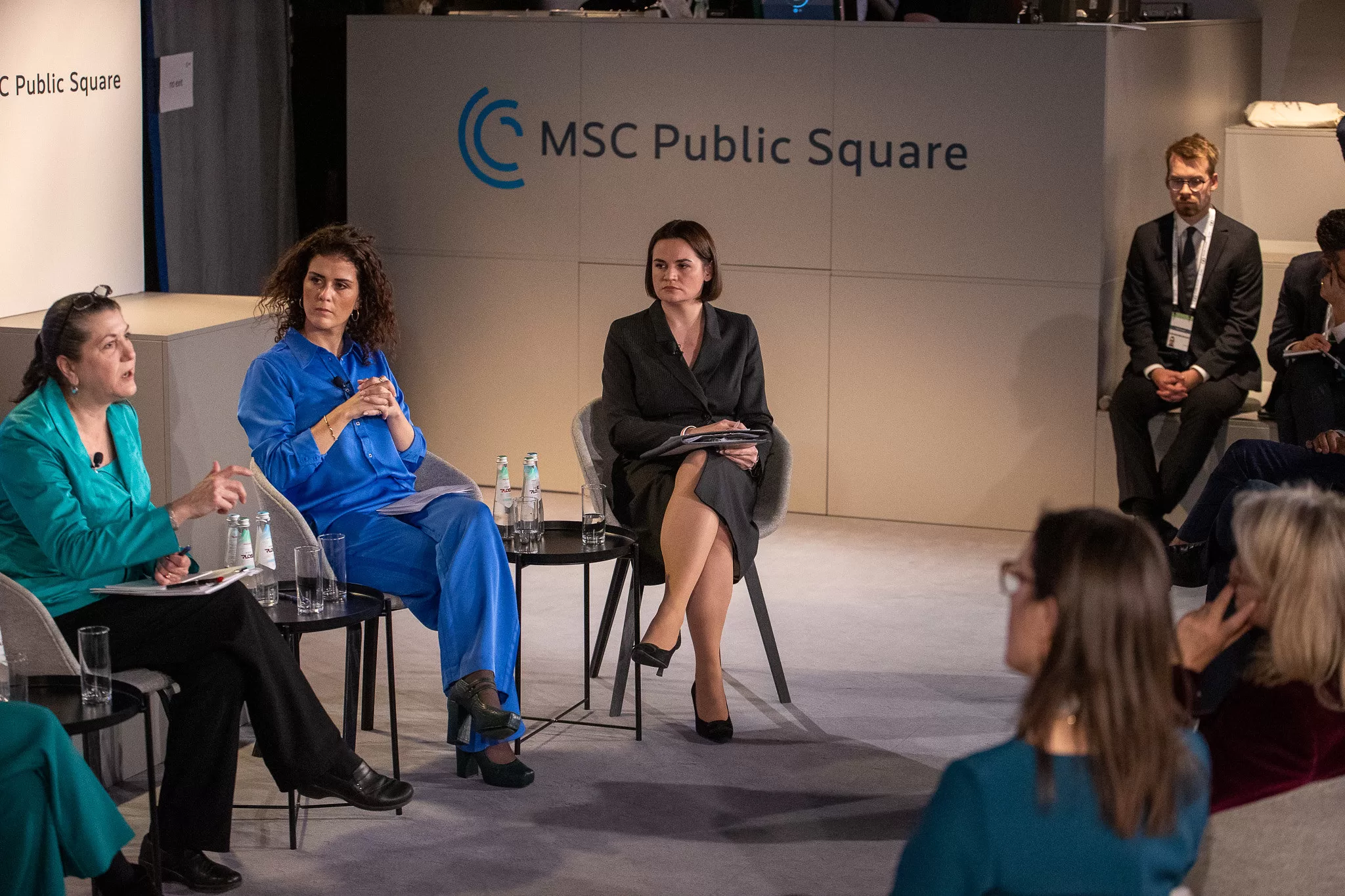For the third year in a row, Sviatlana Tsikhanouskaya will participate in the Munich Security Conference, which gathers leading politicians, experts, and civil society representatives in Germany to discuss key global security issues.
During her visit, the leader will raise critically important issues concerning the current political and social situation in our country. She will speak about the repression against the Belarusian people, the pressure from Russia, and the threats posed by the deployment of nuclear weapons in Belarus.
What is the Munich Security Conference?
It is an event where the most pressing and relevant issues of international security and politics are discussed. During the conference in early February 2022, discussions revolved around the potential armed aggression of Russia against Ukraine and various regional conflicts. In 2023, the focus was on the war in Ukraine. The conference also addressed the issue of authoritarian regimes attempting to alter international rules and order.
Who participates in the conference?
Munich brings together global leaders, security experts, politicians, and civil society representatives. Prominent participants in recent years included Presidents Emmanuel Macron, Joe Biden, and Volodymyr Zelensky, as well as German Chancellor, Olaf Scholz, US Vice President, Kamala Harris, UN Secretary-General, António Guterres, and European Commission President, Ursula von der Leyen.
Why is the conference important?
The conference serves as a platform for dialogue, solution-seeking, and cooperation among countries to ensure global peace and stability. The significance of the conference lies in bringing together global leaders to discuss complex challenges and trends impacting international security, including issues of global health and food security or gender perspective in security policy.
What else will the conference feature?
During the conference, the Ewald von Kleist Award for contributions to peace and conflict resolution is presented, as well as the John McCain Award for dissertations on transatlantic relations.
There is also the Munich Young Leaders program. It aims to unite future leaders and contribute to expanding international ties by annually electing 25 young representatives of government institutions, parliaments, analytical centers, media, and companies from different countries as young leaders.
Another program started in 2023 that unites a new generation of women MPs from the Bundestag and the European Parliament. The elected group proposes new ideas for Germany’s security and development policy in various formats throughout the year.
What will Sviatlana Tsikhanouskaya talk about at the conference?
The Belarusian leader will address a range of critically important issues concerning the current political and social situation in Belarus and its impact on international security.
Ms. Tsikhanouskaya will discuss the issue of nuclear weapons in Belarus and political and military pressure from Russia. She will also speak about the repression against Belarusians. The Munich Conference will provide an opportunity to appeal to the international community to support democratic Belarus and intensify international pressure on the regime.
Who will she meet?
Sviatlana Tsikhanouskaya is expected to meet with global leaders to discuss the situation in Belarus and call for support for the Belarusian people who are fighting for their rights and freedoms even despite the pressure from the dictatorship. These meetings will aim to convince international partners of the need for joint efforts to support Belarusians’ struggle for democracy.
Why is the Belarusian leader’s participation important?
Sviatlana Tsikhanouskaya’s participation in the Munich Security Conference is of paramount importance for Belarus and its future, as it highlights the recognition of the Belarusian leader as a representative of the Belarusian people on the international stage. It elevates the issue of Belarus to a higher level on the international agenda.
Additionally, it demonstrates international solidarity in supporting Belarusians and contributes to strengthening pressure on the regime.








